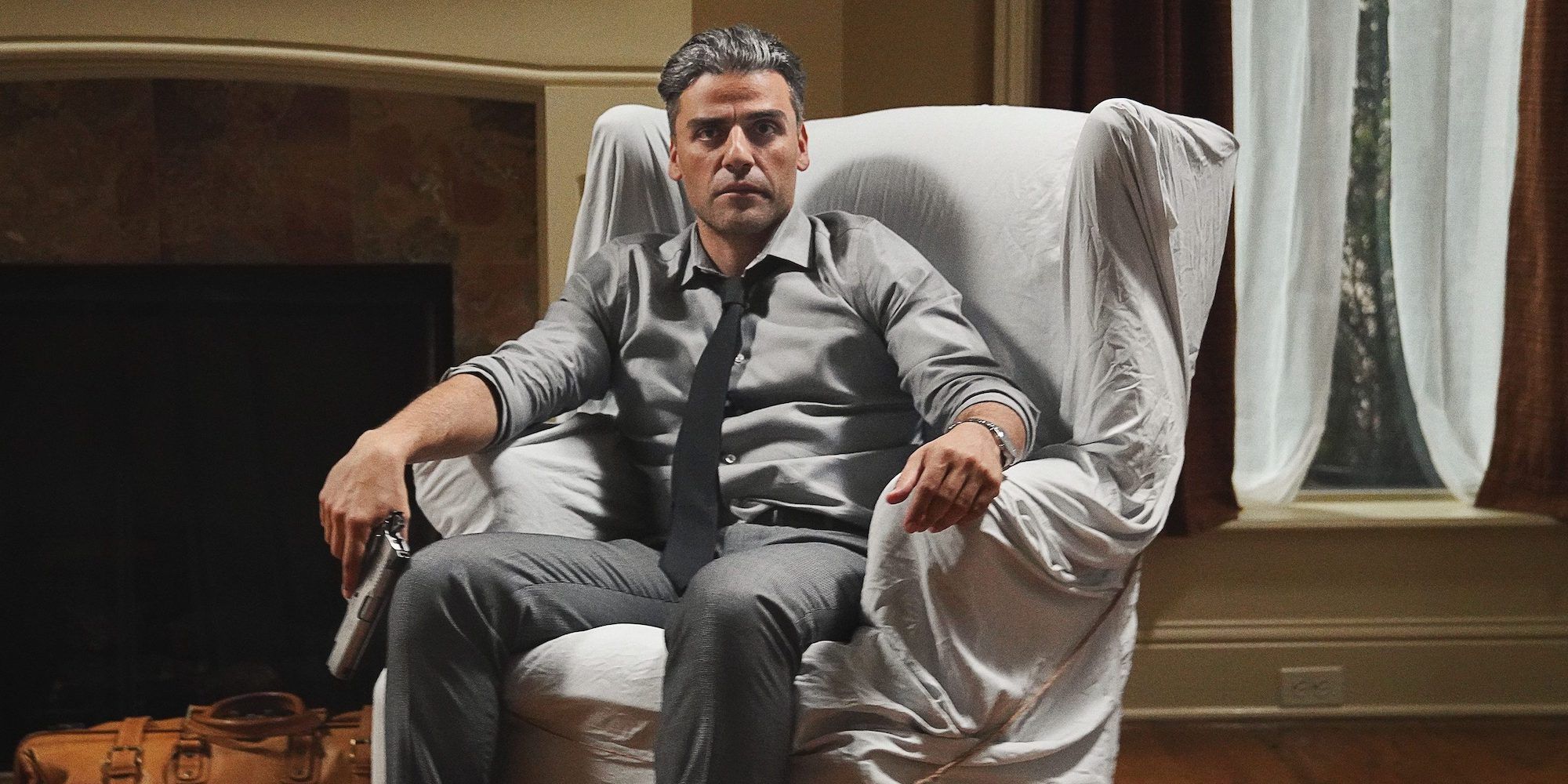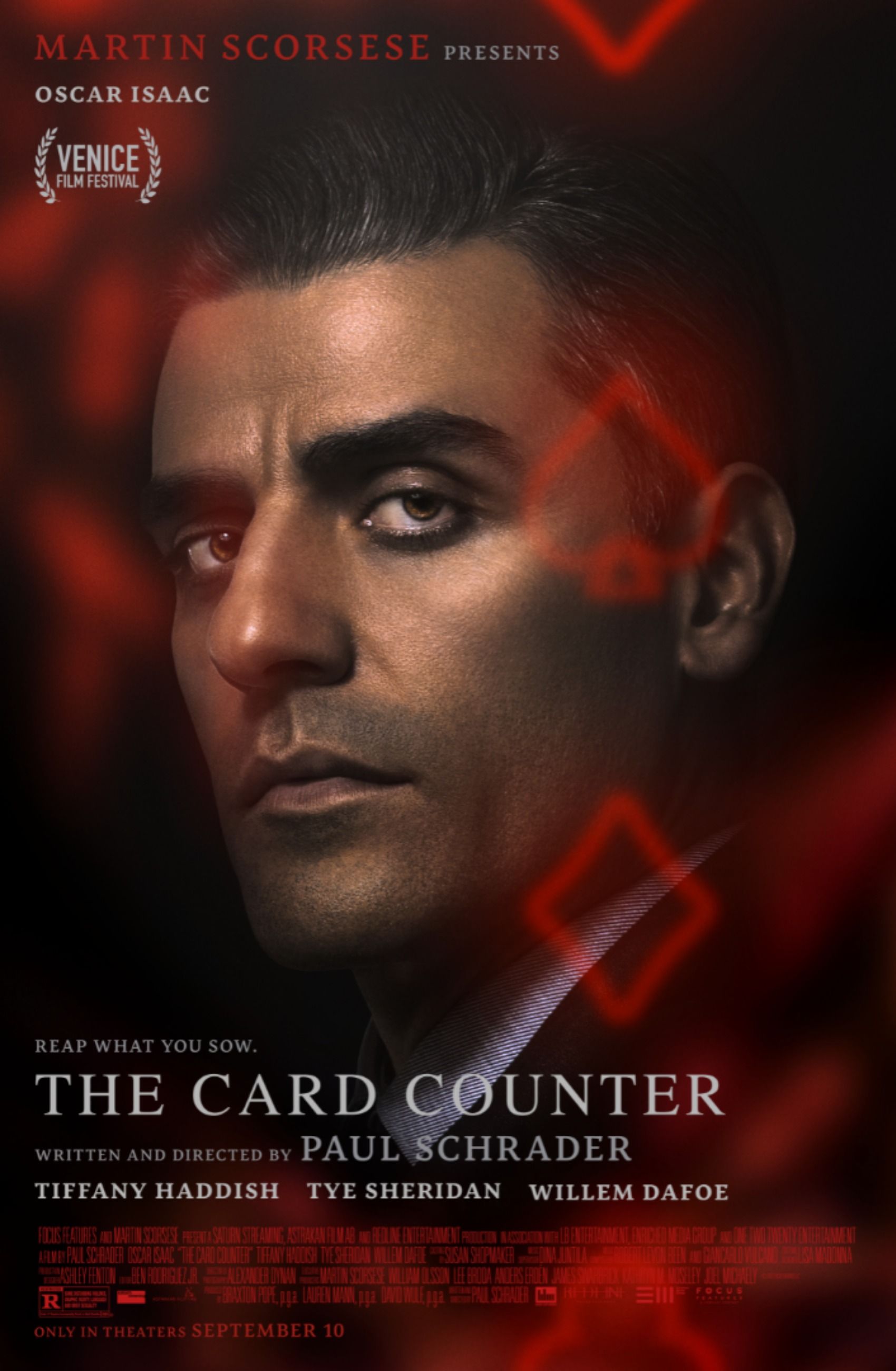Paul Schrader's The Card Counter hits theaters this weekend and it's a film that doesn't tread the usual narrative routes, and the ones it does tread get quite dark. The story follows Oscar Isaac's William Tell, a gambler and card counter with dark secrets. When he meets Cirk (Tye Sheridan) a troubled young man with ties to Tell's own past, he views helping Cirk as a means of redemption and atonement. With help from La Linda (Tiffany Haddish), who runs a stable of professional gamblers, Tell works the gambling circuit, but Cirks obsession with vengeance threatens to pull Tell right back into the horrific past he's trying to leave behind.
Screen Rant sat down with Oscar Isaac to talk about grappling with such dark subject matter, the challenge of shooting just one or two takes, and, of course, a bit about the upcoming Moon Knight.
This movie deals with and taps into a lot of darkness, it goes dark places. Was that something that intimidated you when you read the script? Or was it why you were excited to dive into the role?
Oscar Isaac: I think it was... The first time I read it, I didn't even understand it totally. I wasn't sure what was happening. I remember when I got to a certain scene, I even threw the script down and I was like, "No, no, no. Don't tell me. No, he's not gonna do that. Is he really really?" And then it didn't turn out being the thing that I thought it was gonna be, which just made me more intrigued. So then I read it the second time and it started to make even more sense to me, and I think that's actually what attracted me to it. There was so much mystery and so much tension in what was happening, and I couldn't anticipate what was gonna happen next with him as a character, and I thought that that was just a really fascinating challenge.
Tye [Sheridan] said that [director] Paul Schrader likes to do maybe one or two takes and then he's out. Do you find that it's harder to shoot that way when working with a script that's more of a challenge to get into?
Oscar Isaac: Well, I wouldn't say it's out of wanting, it's out of necessity, 'cause this is an incredibly frugal budget that we have to make this movie. It's a tiny, tiny film. So in a way it is, it's out of necessity. But we had a good week of rehearsals beforehand. We had tons of conversations about it, and I felt quite keyed into it. And he'll take the time if he feels that it's not working. But for him, that's why the casting is really important. And so once he really locked in on the three of us, myself, Tye and Tiffany, I think then he just felt like he could trust it. But yes, it's challenging to only have one or two shots at it.
We see the flashback scenes where your character is younger, a little bit naive and falling into that violence. And obviously, it's based on the real Abu Ghraib prison torture. Were those scenes hard to shoot emotionally and in the sense of getting in and out of that mindset? I imagine it has to be hard.
Oscar Isaac: Yeah, they were brutal, the way that they had staged in two, 'cause there's these long continuous shots, and we had the actual dogs in there, and you had this re-creation of Abu Ghraib. And it's really disturbing. And also all the research that went into it, Leavenworth and about those people that got sentenced for what they did and it coming from the top. There's the trauma, the trauma that was perpetrated on the victims, and the trauma that they perpetrated on themselves.
Switching gears for a second, let's talk Moon Knight. What did it feel like the first time you put on the costume and saw yourself?
Oscar Isaac: It felt right. It felt absolutely right. That's all I could say about it right now. [laughing]
You have one of Marvel's famed snipers hiding in the background even now.
Oscar Isaac: Exactly. [laughing] Exactly. The whole thing is... What I can say is it's gonna be... It's gonna be a groundbreaking show.


